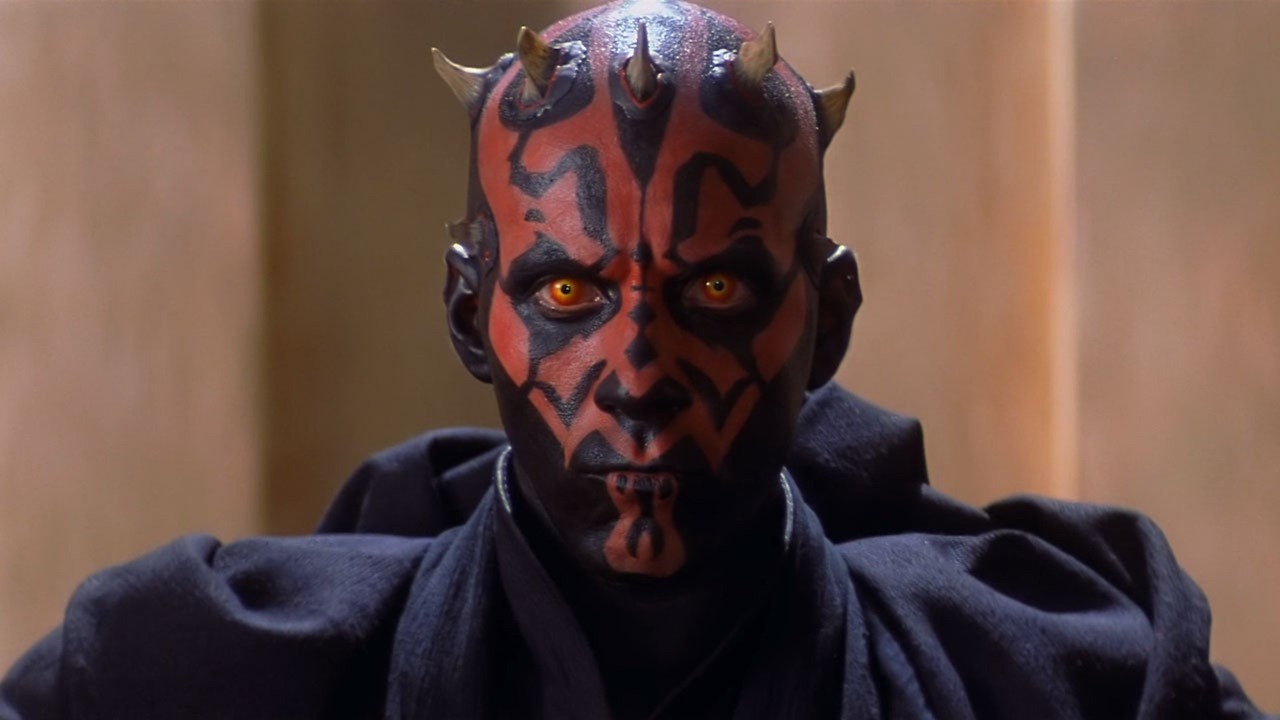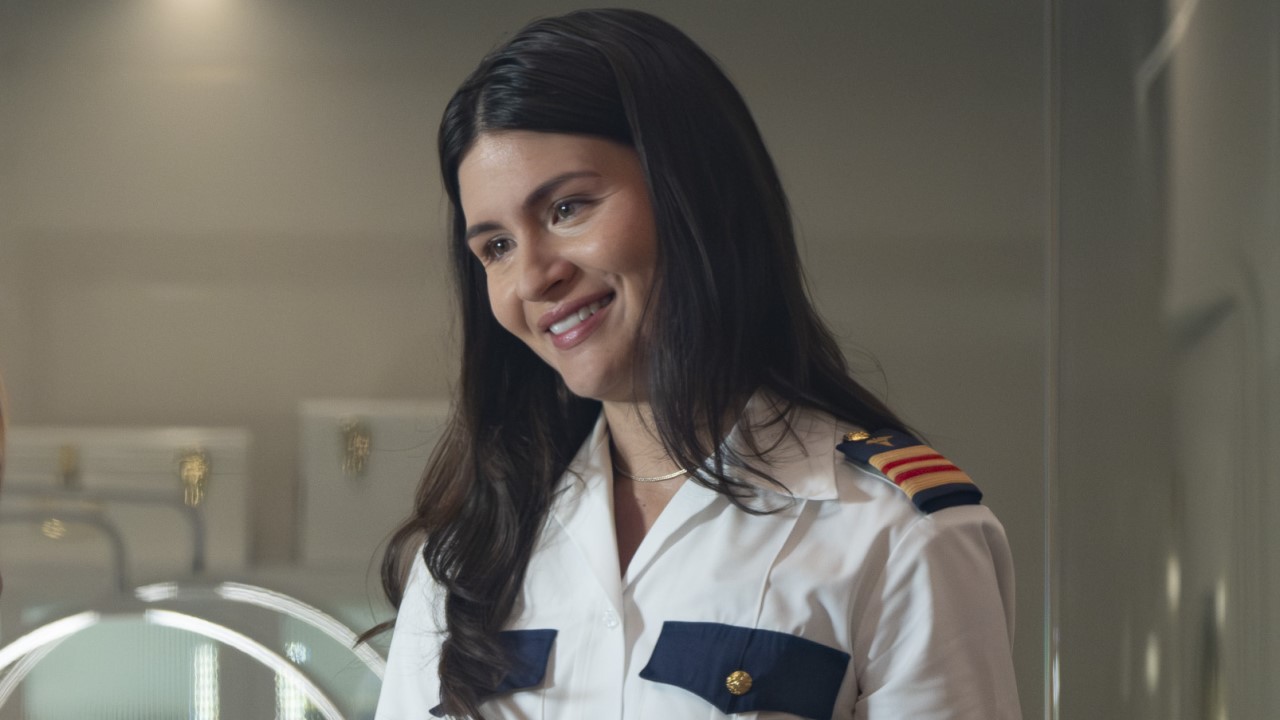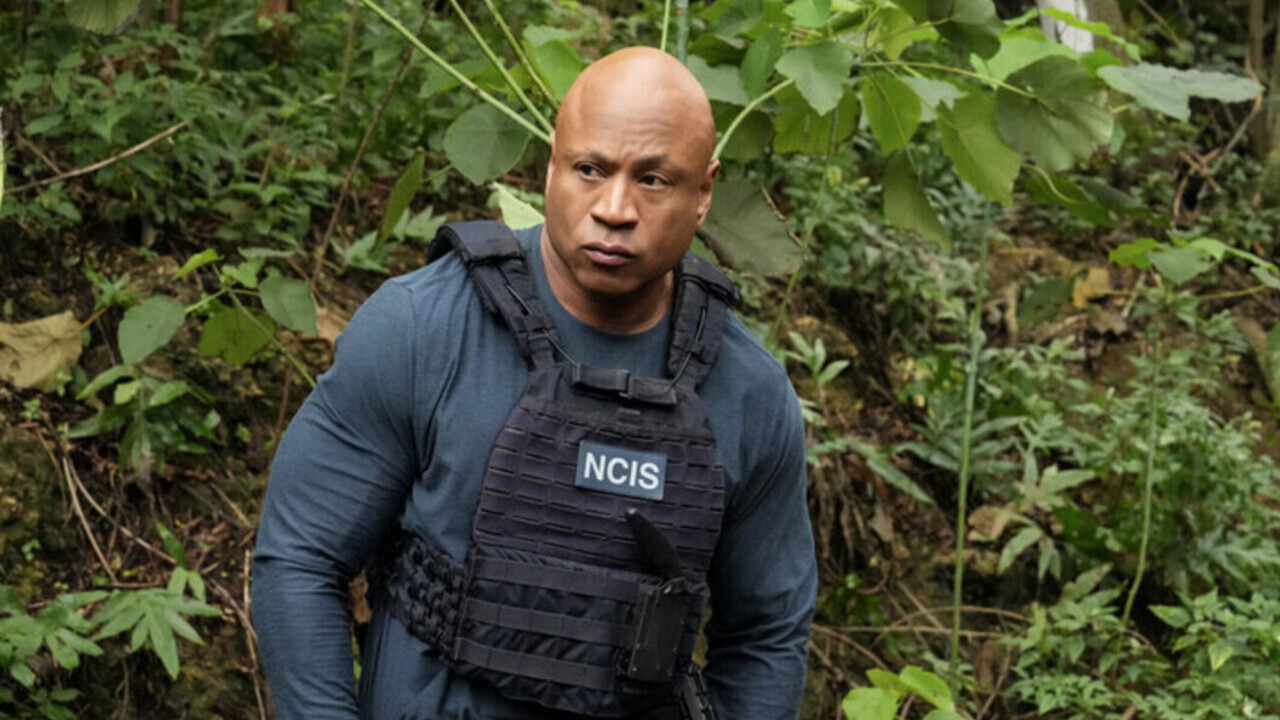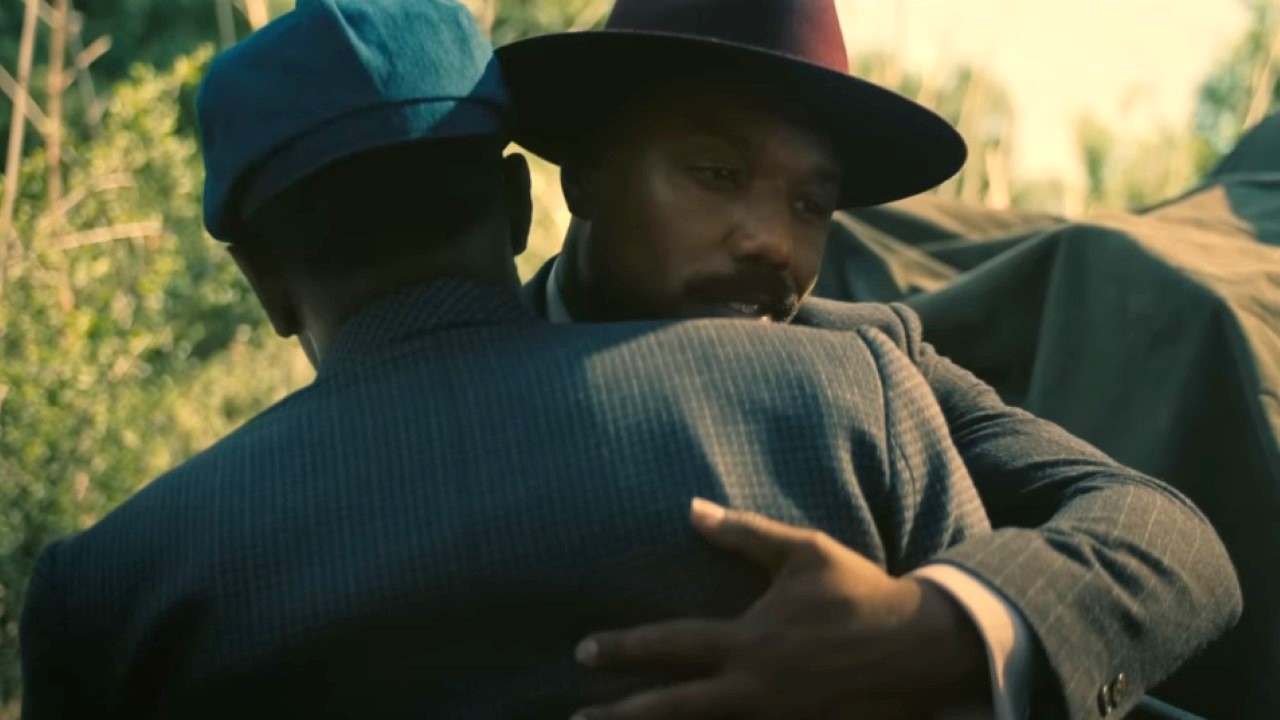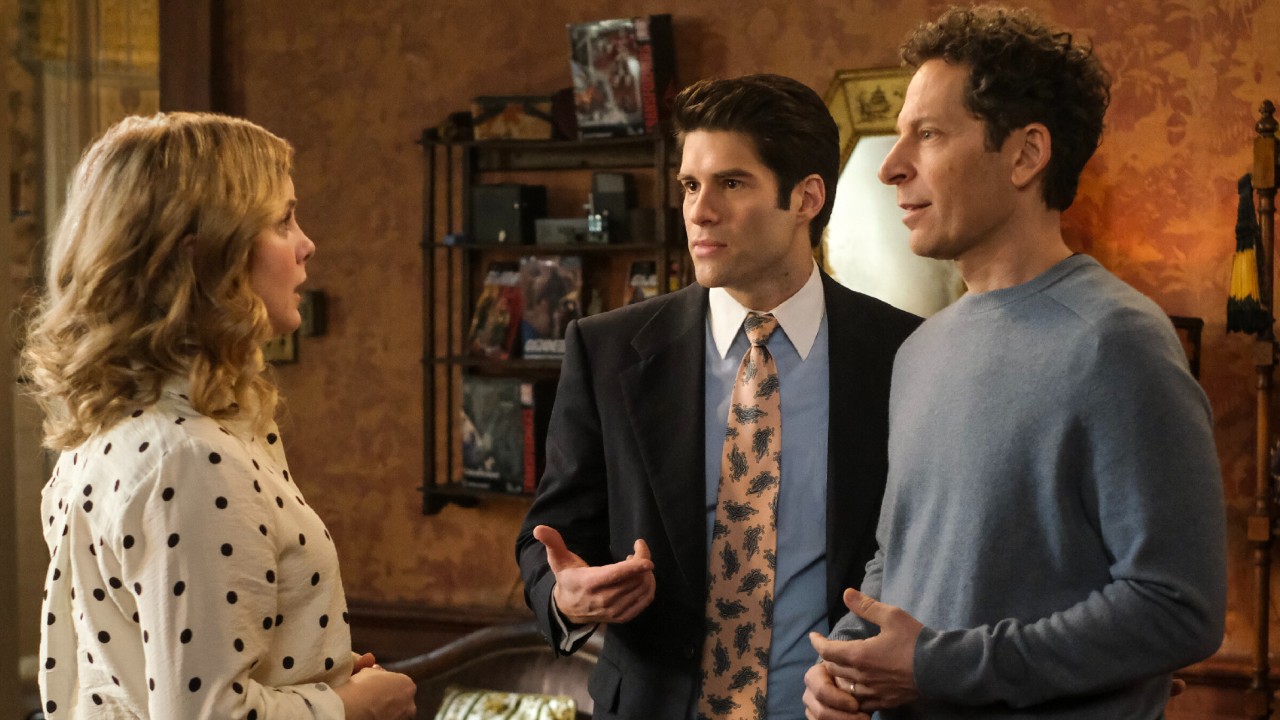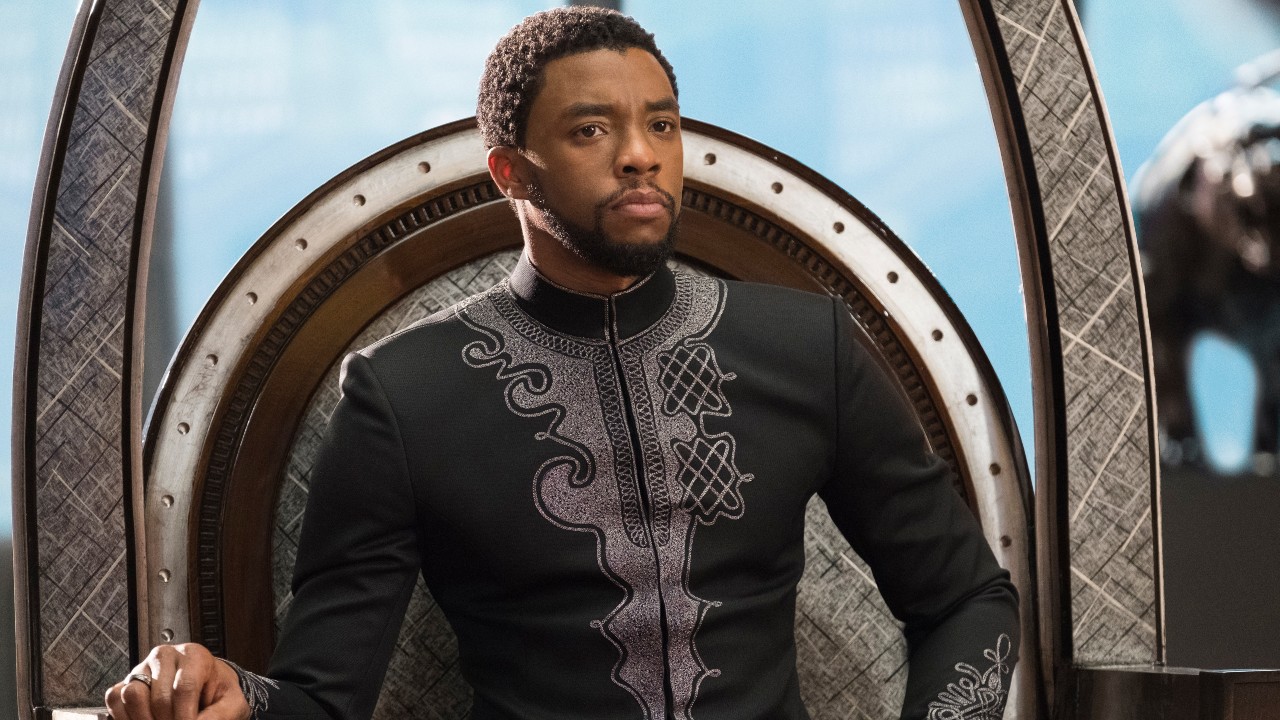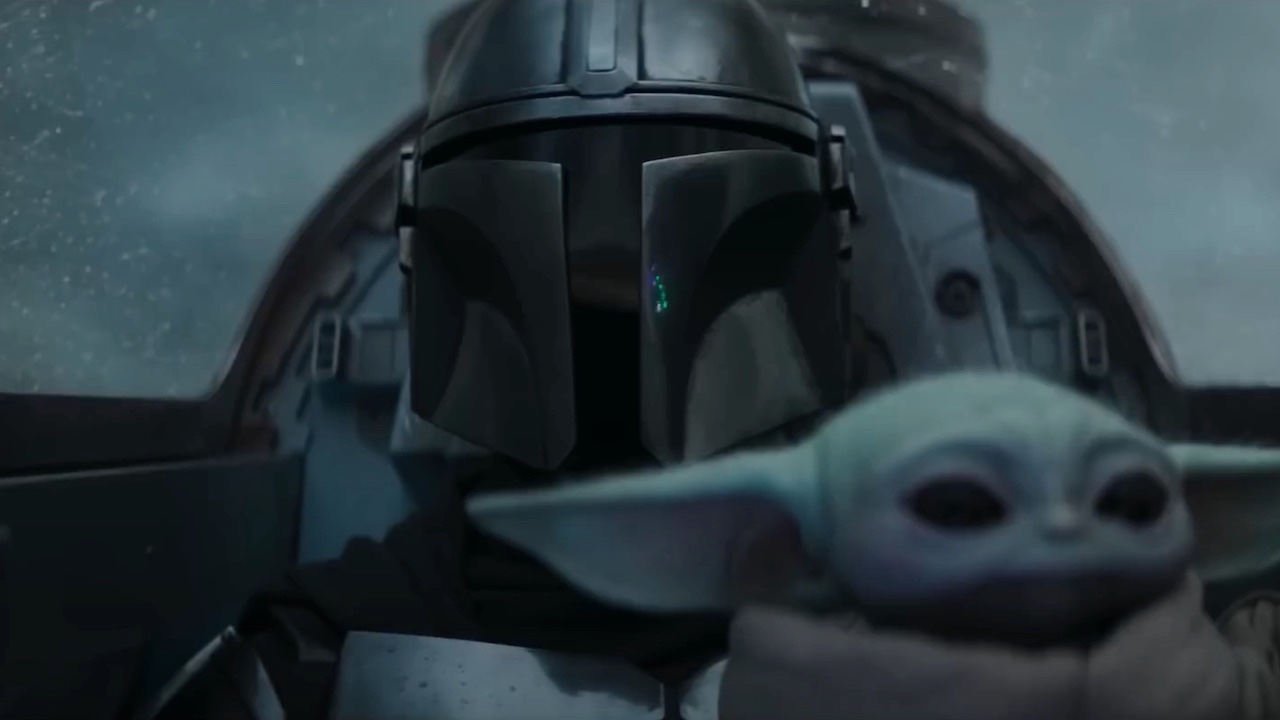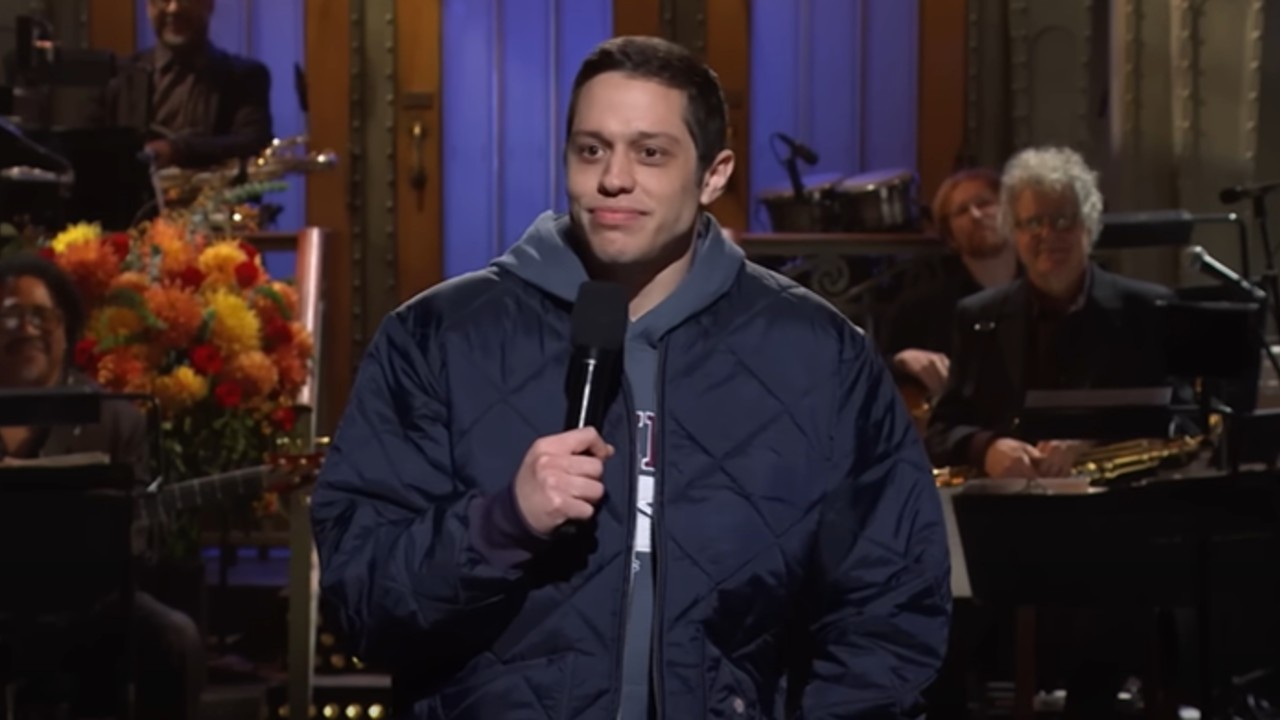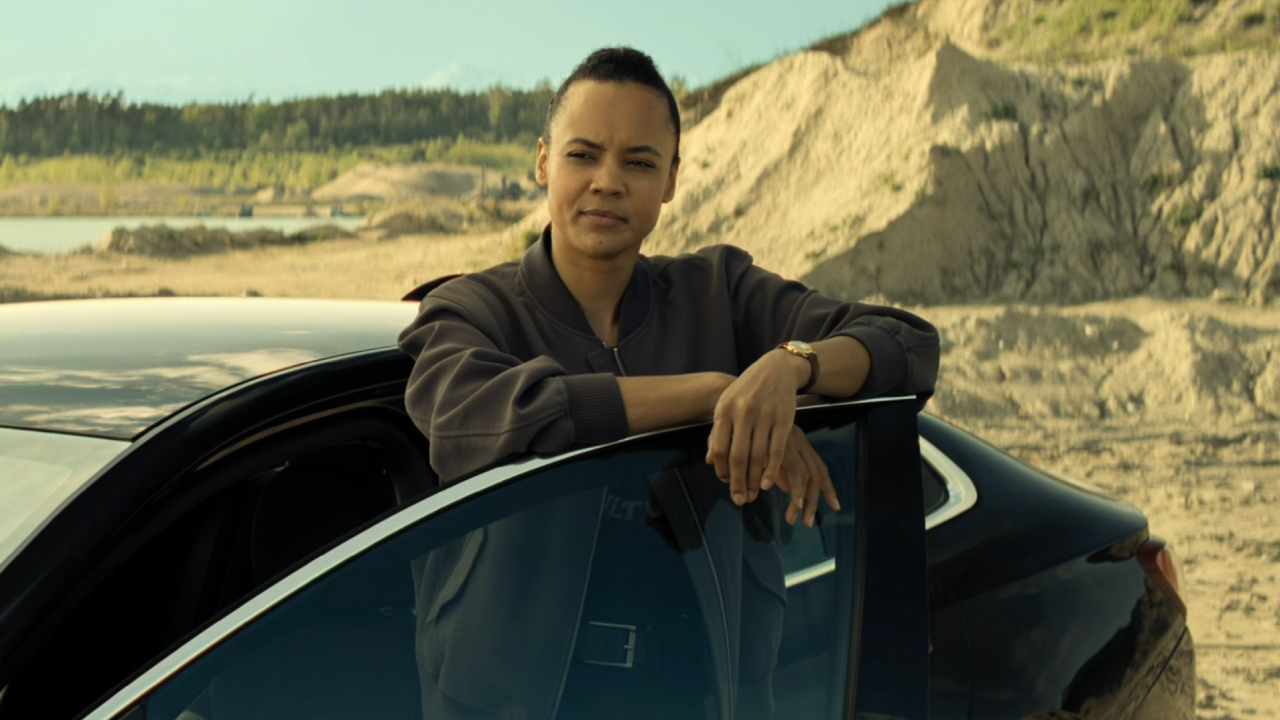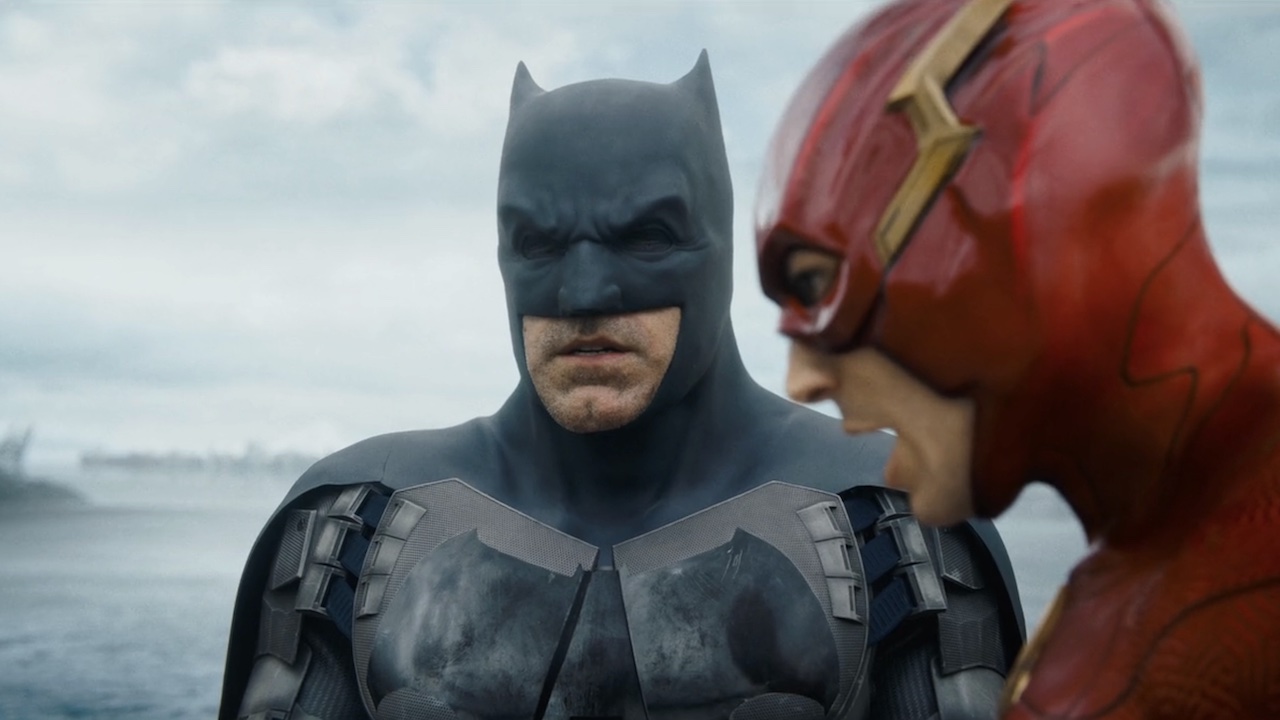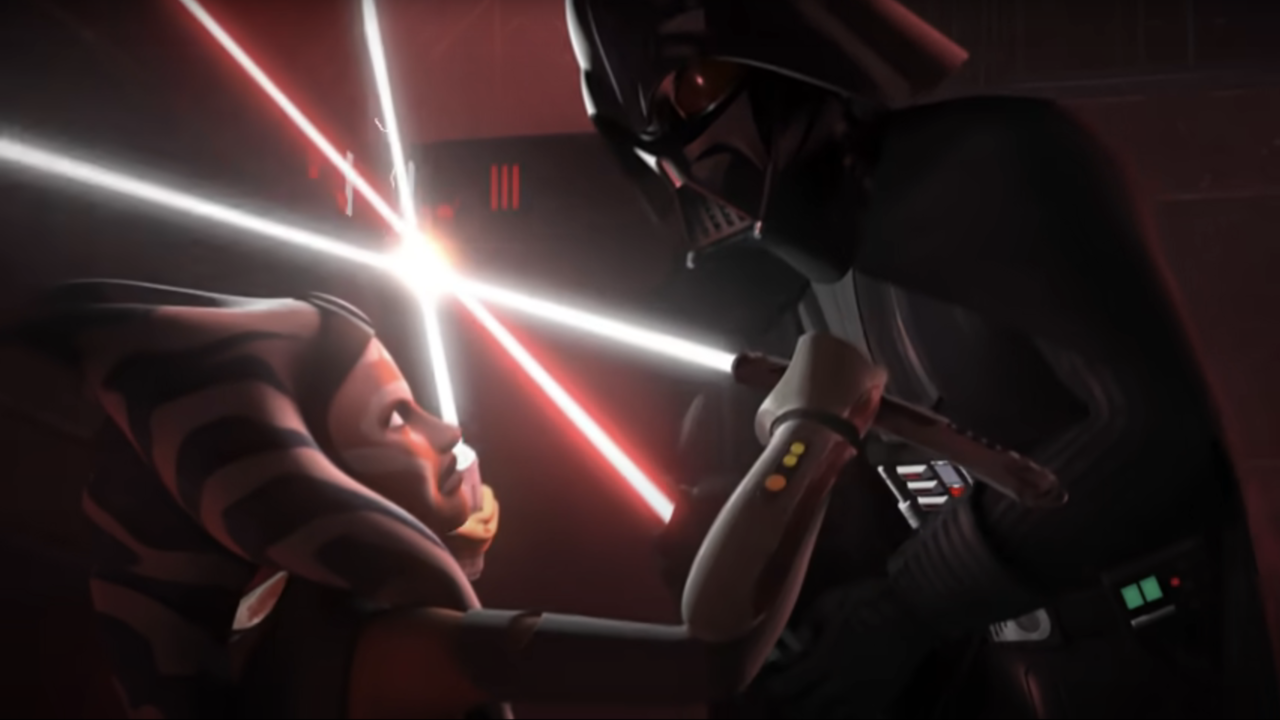21 Jump Street Writer Michael Bacall On Meeting Jonah Hill Through The Psycho Funky Chimp
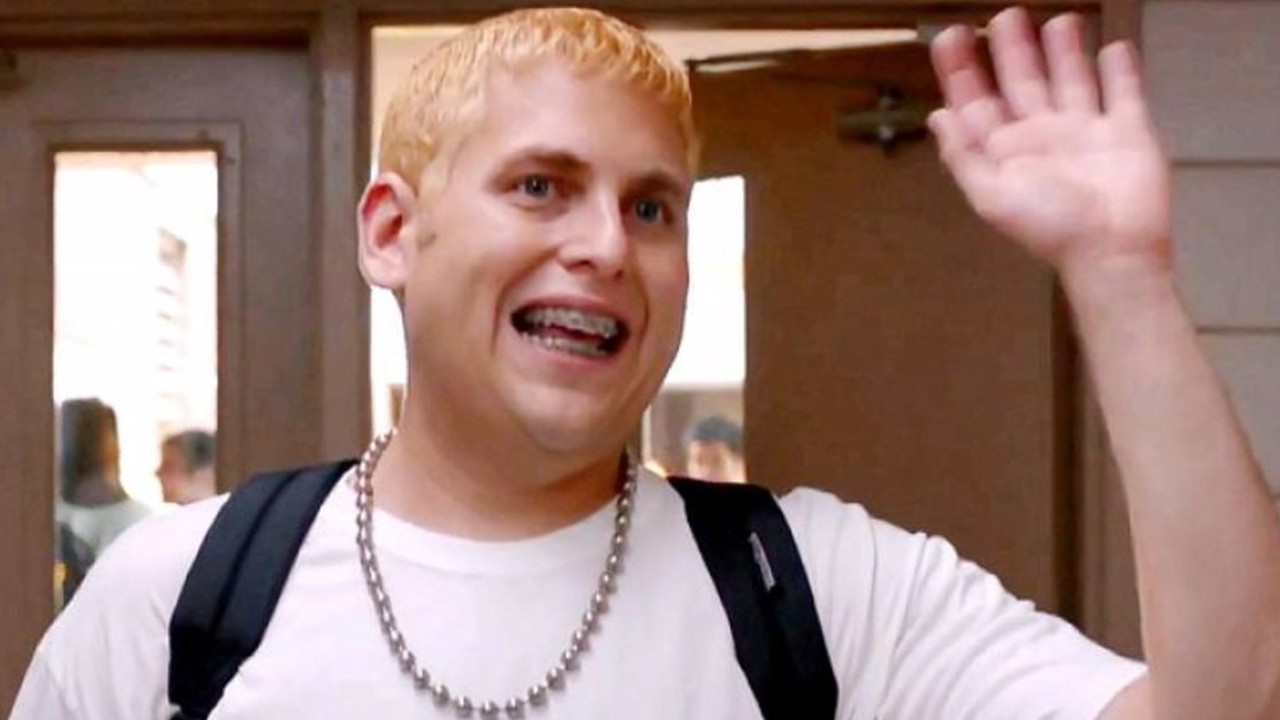
Prior to working on 21 Jump Street, Michael Bacall and Jonah Hill had never done a project together. It’s a surprise given that the film works so incredibly well and most of that has to do with the quality of the script. So how did the two of them come to meet. Why, through the Psycho Funky Chimp, of course.
I recently was given the opportunity to sit down and chat with Bacall one-on-one about his work on the new comedy, which comes out today. Check out my interview with the writer below in which he talks about how he came to work with Jonah Hill, his reflections on the 80s show that the film is based on, how this project and Scott Pilgrim are linked through Clone High.
How did you first get into this project? Were you a fan of the television series?
Yeah, I was a big fan. I was a kid when the Fox network had its first lineup. I think that was even pre-Simpsons, I could be wrong about that, but there was just a few shows on Sunday, I think, and 21 Jump Street was one of them. And at the time it was incredibly edgy and it was the cool, hip thing to be watching if you were a kid at the time. I actually wasn’t always allowed to watch it [laughs]. I snuck a few episodes in. And so revisiting it for the movie was really kind of trip, a real flashback.
I got involved, I had been working with Jonah Hill, he was attached to a script that Todd Phillips was actually a producer on. It was a comedy, it was my first comedy, original story I wrote called Psycho Funky Chimp. And it was about this kid who collects Pez dispensers and he needs only one to finish his collection and it’s a legendary Pez dispenser that may not even exist – one of a kind. He finds it, and then the antagonist is this evil billionaire, nouveau riche dickhead who also collects Pez dispensers, and he’s an evil version of the collector. And he just tries to buy everyone out instead of putting in the work. So it’s this basement-dwelling 25-year-old who lives at his parent’s house versus this guy with billions of dollars and they’re both at war over this one Pez dispenser they both need [laughs].
So that was really fun, talking with Jonah about that. It wound up not getting made, like a lot of things, but we struck up a good friendship and he called me about a year later, and we had talked about coming up with some kind of action comedy. Our mutual friend David Gordon Green was doing Pineapple Express at the time, we were getting kind of excited about that. And he called me a little while after we had been collaborating on this thing and he said, “What do you think about 21 Jump Street as a hard-R buddy cop movie?” and I totally flipped out over it. We just sat down and started kicking it around and it was a good time and really fun to develop something with someone that funny and we share a lot of the same comedic sensibilities. So it was just enjoyable to kind of develop a story together and just come up with the craziest stuff we could come up with and try and put a structure together. I think from the beginning we knew we wanted it to be about guys with unresolved issues from their high school experience, like most people have. Guys who think they’re over it but absolutely are not [laughs]. So it’s this idea that when they find themselves back in high school it’s kind of reopening these old wounds.
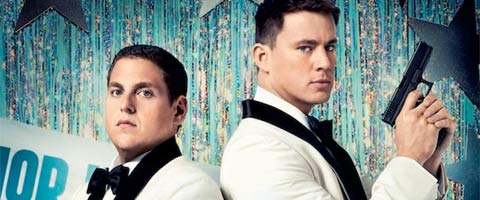
You mentioned that the idea kind of got going as a hard-R buddy cop movie, but the show was really more of a drama with the occasional funny moments, like the play between Tom and Penhall. So it was always going to be a comedy and never a drama?
CINEMABLEND NEWSLETTER
Your Daily Blend of Entertainment News
I believe there were previous dramatic versions that had been developed even at other studios. I’m not really that familiar with the history before Jonah and I came onboard. But I think they had been developing it as more of a straight-forward action version. But as far as when Jonah started discussing it with the studio it was immediately presented as the comedy version.
When I started watching the old shows I had kind of forgotten that they had that kind of silly comedy element to it, [laughs] it’s kind of fun and really goofy. The Peter DeLuise-Johnny Depp kind of comedy duo as the McQuaid brothers made me laugh so we kind of made that their undercover moniker [laughs].
And what was the collaboration process like? I ask because I noticed in the credits that you are both credited with developing the story but only you have the screenplay credit.
We collaborated on the treatment together, got the basic outline down. We both worked on it the whole way through. We wrote the treatment and then I scurried off and then based on that treatment I wrote a bunch of drafts. But, of course, every time that a draft would be finished I’d give it to Jonah and Neal Moritz first. And when Phil [Lord] and Chris [Miller] came on it would kind of be the five of us getting in there and just doing as much work as we could. You can’t have enough smart people working on something like this and giving ideas and really just trying to pack it as densely as possible with laughs and twists and turns. So it was a highly collaborative process. I had to sit down for months and crank out these drafts, but it was a really great situation when you’re working with very funny, intelligent writers as your collaborators. When you turn those drafts in they just get better and better by virtue of everyone else’s contributions. Jonah is also an amazing improviser, so the hope is that you can’t really tell the difference between when something is improvised and when it’s scripted. He’s great at pulling that off and I think that Phil and Chris are great storytellers. Cloudy With A Chance of Meatballs is a fantastic animated film, and they also had a lot of great contributions to the story and some great lines and great ideas. It was really fun working with people you can trust creatively.
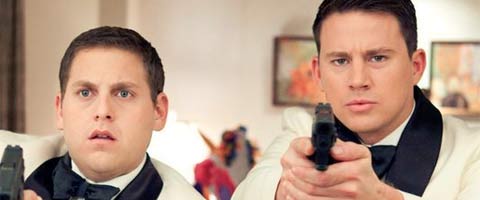
Do you think it’s possible to make a comedy like this without that sounding board?
Well, Scott Pilgrim was a different experience because Edgar [Wright] is a filmmaker who sees the movie very precisely and specifically. So when you show up on the day he knows exactly what he needs, he knows the timing, he knows the rhythm, so that is a situation where, I think, from an actor’s perspective it’s less about improvisation and more about inflection, and Edgar is an amazing actor’s director and it’s just a different process. You’re writing very specifically, you are paying very close attention to every detail, to every set-up and payoff, and I loved working like that. I enjoy both processes, they are very different. There are filmmakers who can’t demand that specificity and I’m really proud with how Scott Pilgrim turned out. It’s interesting to see two movies turn out really well with two completely different processes. It’s kind of fun to switch between those types of writing.
Obviously they have their differences, but did you see links or commonalities working with Phil and Chris versus Edgar?
Well, what’s crazy is that when I started working with Phil and Chris, when they came on to the project and we were working on another draft at the time. They said…no, no, actually, Bryan Lee O’Malley found out that they would be directing 21 Jump Street and he said that their animated show Clone High was massively influential on Scott Pilgrim.
That’s awesome!
And Phil and Chris were huge fans of Scott Pilgrim, the books and the movie, so it’s this weird everything orbiting everything kind of thing [laughs]. So I think that there is a kind of shared sensibility with all of us on a certain level. And Phil and Chris are really good filmmakers. Obviously they understand, you can watch Cloudy and look at how good they are with physical comedy, even though it’s animated you can still call it physical comedy. So many great sight gags, densely packed with jokes, and they definitely understand building a sequence and trying to make it funnier and funnier until the button is just explosive [laughs]. So yeah, I think there’s definitely a shared sensibility, but a different approach in this project in terms of actors and performance. But they’re also, like Edgar, very visual filmmakers.
I know that I have to wrap up soon, but I am curious about the status of one of your other projects. What’s happening with the Les Grossman biopic?
Paramount has a draft. I think Tom [Cruise] is really busy…obviously [laughs]. He’s kind of an in-demand dude [laughs]. That was a really enjoyable process for me because I got to meet with him several times and I got to meet with Ben Stiller several times, and these are guys who have incredible filmmaking knowledge and have been around. They’re really intelligent, they had some really, really great ideas and I think we came up with something really fun and surprisingly emotional for a character who comes off as kind of a raging asshole in Tropic Thunder [laughs]. We dig a little deeper in a fun way and I think, should it ever get made, it will still have that explosive quality to it. But hopefully there’s some nice emotional journey in there as well. It was a blast to work on.
When you’re making a movie about a movie executive I have to imagine that there is some risk of making it a little too restrictive and “inside baseball.” Was that something you had to consciously avoid while writing the script or is it something that never came up with the story you’re telling?
Yeah, it’s both. There’s an advantage to knowing some of that stuff, and I did a lot of research on what that world has been like. And I read some books like [James B. Stewart’s] “Disney War” and…what’s that one about when Sony bought Columbia? The name of the book escapes me right now. So I think that’s good to have that as a background, and, you know, Tom has a lot of knowledge about studio politics. And that was the trick. We didn’t want to get so deep into that that it was inaccessible to a larger audience, but we did want to have it as some kind of a background in there and I think we came up with a couple of really fun moments that wouldn’t be too inside for people to really grasp, but feel inside enough to be authentic.

Eric Eisenberg is the Assistant Managing Editor at CinemaBlend. After graduating Boston University and earning a bachelor’s degree in journalism, he took a part-time job as a staff writer for CinemaBlend, and after six months was offered the opportunity to move to Los Angeles and take on a newly created West Coast Editor position. Over a decade later, he's continuing to advance his interests and expertise. In addition to conducting filmmaker interviews and contributing to the news and feature content of the site, Eric also oversees the Movie Reviews section, writes the the weekend box office report (published Sundays), and is the site's resident Stephen King expert. He has two King-related columns.
